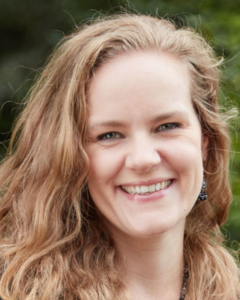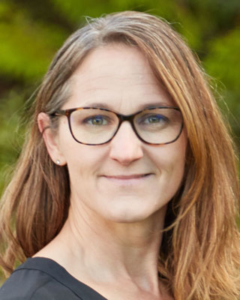Early Years & High School Handbook
General school policies, guidelines and member expectations can be found in this section. The Early Years programs and the High School have a specific set of procedures which are included in the pdf handbooks below.
Supervision & Missing Child Procedure
Teachers regularly take attendance at the beginning of each class. Playground supervisors stay on fields until all students have returned to class after breaks or have been signed out/picked-up by parents. If a child should be found to be missing from the class, the Missing Child Procedure will be initiated. During bear season (spring and fall) attendants will also do sweep of the playground areas to check for bears and wildlife on school grounds. All these details and drop-off/pick-up and leaving campus procedures are included in the Student Supervision Procedures.
See the last tab for further policy reference.
Whistler Waldorf School adheres to established policies and procedures for student recruitment and enrollment. Admission into WWS includes a fair and inclusive process that acknowledges WWS’ non-profit, independent school environment and specialized Waldorf curriculum. The goal of the admissions process is to assist prospective students and families in making informed decisions, so students have the best possible opportunity to succeed.
Birthdate & Class Placement:
A child who will be five years old on or before December 31 is able to enter kindergarten for that school year. This date is commensurate with the cut-off date for entry in most schools across Canada. There are a variety of factors that are considered when a student enrolls. Determinations will be based on the criteria outlined in our Combined Class and Birthdate Admissions Policy with final approval from the Head of School.
Diversity & Equity in Waldorf Schools:
British Columbia Waldorf Schools have, since their inception, espoused principles of respect for human rights and the diversity of humankind. Today, all British Columbia Waldorf schools continue to define diversity as a range of racial identifications, ancestries, nationalities, native languages, socioeconomic backgrounds, family structures, ages, belief systems, gender and sexual identities, abilities, appearances, occupations, and political affiliations.
See the last tab for further policy reference & Special Education FAQs.
Communications & Appeals
There are countless ways WWS communicates with students, families and our staff so if you have any questions relating to communication and who you should reach out to best have your questions answered, please refer to the Contact List at the bottom of this page for specific contact names and emails.
For a general rule of thumb, the best way is to start with your child’s class teacher, especially regarding specific questions about class discipline, homework, student progress, academic standards and more. If there is a question that they can not answer, then the Early Years, Grade School and High School Chairs are the next best resource. After that, if there is still a concern regrading an unresolved issue, parents and staff are requested to follow the Communications Policy and reach out to the Head of School or Directors for more assistance.
Our Commitment to Privacy
Safeguarding personal information of parents and students is a fundamental concern of Whistler Waldorf School. The school is committed to meeting or exceeding the privacy standards established by British Columbia’s Personal Information Protection Act (PIPA) and any other applicable legislation.
See the last tab for further policy reference.
Earthquake& Emergency (including Wildfire):
The school is prepared to care for your child in the event of an emergency until you or an authorized alternate are able to pick him or her up as we are self-sufficient for 72 hours following a major emergency. Our school holds regular emergency drills to discuss how to respond during an emergency or disaster situation. Children will be released only to their parents or designated emergency contacts on your child’s medical form.
Air Quality:
Wildfire smoke, weather and climate events can pose a health risk, particularly in vulnerable populations, including children, and those with respiratory or heart conditions. The policy provides guidelines for modifying and cancelling regular activities during air quality events of moderate and high risk.
See the last tab for further policy reference.
Drugs & Alcohol:
Possession, consumption, or use of alcohol or drugs on school grounds or at a school function is prohibited. For the purposes of this policy:
- “school function” includes any assembly, meeting, or gathering of students, or student field trips for school purposes under the supervision or direction of the Board, representatives of the Board, or the teaching or supervisory staff in the course of their duties;
- “alcohol” includes beer, wine, cider, and spirits, and “drugs” includes substances, the possession of which is prohibited under the Narcotic Control Act, or anything which contains such a drug or substance or any drug or substance designated a restricted drug under the Food and Drug Act, unless the person possessing or consuming the restricted drug was authorized under that Act to possess the drug.
A student who has been found to have:
• brought alcohol or drugs in or upon school premises or to any school function;
• has in his/her possession alcohol or drugs; or
• consumed alcohol or taken drugs and is found on any school premise or at any school function; has committed a serious infraction and may be expelled from the School.
In the event the student has consumed alcohol or drugs or has in his/her possession alcohol or drugs, the School shall immediately contact the student’s parent/legal guardian and have the parent/legal guardian arrange for the removal of the student from the premise or school function. The School may immediately suspend the student pending an investigation of the situation in accordance with the Discipline Policy.
See the last tab for further policy reference.
WWS & BC Waldorf Detailed Policies:
Waldorf Schools in BC are members of AWSNA – the Association of Waldorf Schools of North America. AWSNA is a non-profit membership organization that supports Waldorf schools through collaborative regional work, professional and resource development, accreditation, community outreach, and advocacy. Whistler Waldorf School is part of the BC Waldorf Collective that have all received accreditation from AWSNA and are permitted to use the trademark name “Waldorf” to describe and label their school and curriculum. As such, WWS derives a number of our school policies from the BC Waldorf Collective Policy Manual. For policies that are specific to our school, they are listed below for member reference.
WWS Admissions:
Combined Class & Birthdate Admissions Policy
Diversity & Inclusion Waldorf BC Policy
Privacy Policy with WWS Privacy Officer
WWS Operations:
Communications WWS Policy with Appeals Procedure_2023
Covid-19 Procedures and Details – On-site Illness & Covid-19 Policy & On-site Illness & Covid-19 Policy for Early Years



